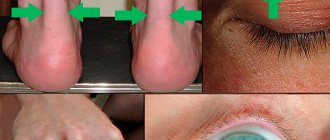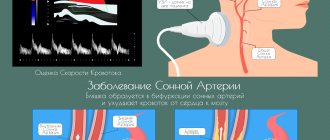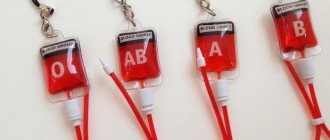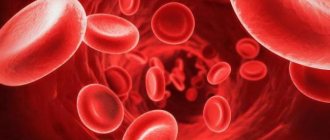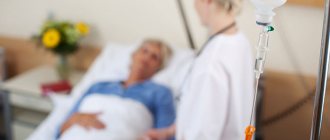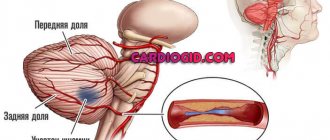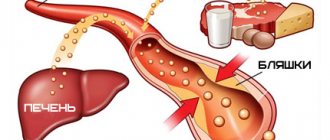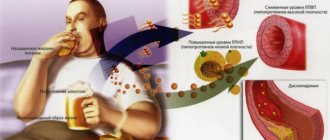Blood thinners reduce blood clotting and thus prevent the formation of blood clots. After all, too thick blood can lead to occlusion (blockage) of blood vessels and, as a result, to embolism, heart attack and stroke. There are many medications available to thin your blood. They should not be underestimated, because they have side effects: dangerous bleeding can occur, bones suffer, and dementia becomes more likely. In our article, we present the best natural (natural) blood thinners without side effects.
Who is suitable for natural blood thinners?
Cardiovascular diseases affect a large number of people around the world. To prevent premature death from heart attack, stroke, and embolism, millions of people regularly use blood thinners (anticoagulants).
But there are also many foods, herbs, spices and supplements that act as natural blood thinners.
If you are already taking blood thinning medications, you should not stop taking them immediately and use natural remedies. Because natural blood thinners are not as easy to dose. No one knows how many of them are needed to achieve a particular effect.
Of course, the possibility of using natural anticoagulants should be discussed with your doctor. You may be able to reduce your blood thinner dosage little by little.
Natural blood thinners are suitable for people who want to improve the quality of their blood and prevent the future need for pharmaceutical anticoagulants.
Signs of varicose veins
With varicose veins, it is vital to monitor blood viscosity indicators. This is a key point in the treatment and prevention of the disease.
The main signs of varicose veins are:
- pain in the legs when walking, at rest;
- visual changes in the skin - hyperpigmentation, the appearance of vascular networks, bulging dilated veins;
- tired legs at the end of the day.
Ignoring the symptoms of varicose veins is fraught with serious consequences. The pathology often develops into phlebitis or thrombophlebitis. But to thin the blood in the early stages of the disease or for prevention purposes, it is not at all necessary to use expensive medications. There are a number of natural food products that successfully cope with this task.
Blood thinners: coumarins, heparins and acetylsalicylic acid
The term "blood thinner" is a little misleading because it doesn't actually thin the blood. The drugs only prevent it from clotting. Since the term "blood thinner" is widely used in the vernacular and is easily understood by everyone, we use it in this article even if it is not professionally correct.
Because blood clotting requires different processes, blood thinners can reduce clotting by using very different mechanisms to make the blood less thick.
Coumarins
In Europe, most people take coumarins, also called vitamin K antagonists, because they block its action. Vitamin K is necessary for the body to form clotting factors. If this vitamin is blocked, clotting factors cannot be formed and the blood becomes thinner, meaning it no longer clots as easily.
Coagulation factors (blood clotting factors) are special endogenous proteins that can change their state from liquid to solid under certain conditions (for example, in the case of injury) and thereby lead to stagnation of blood in some places and the formation of blood clots.
The group of vitamin K antagonists includes phenprocoumon (commercially known as Marcumar) and warfarin.
Heparins
Other blood thinners are heparins. If you were given injections to prevent thrombosis after surgery, it was most likely heparin. Heparins work differently than vitamin K antagonists. They speed up the action of the body's own anticoagulants (antithrombin).
Acetylsalicylic acid
You may be taking acetylsalicylic acid (such as aspirin) to thin your blood. This group of blood thinners suppresses the function of platelets so that they can no longer form clots as well.
Anticoagulants: side effects
Blood thinners are known for their side effects. The main problem is the complex dosage, which must be determined individually for each patient. Therefore, it always takes some time to “settle” the correct dose. And even after this, the situation can constantly change.
For this reason, many patients using coumarin anticoagulants should visit their doctor at least once a month for check-ups. Another group of patients can use a measuring device to monitor blood clotting (INR value) on their own at home and adjust the medication dose accordingly.
The INR (International Normalized Ratio for clotting time) value is around 1 or slightly lower in healthy people.
If the value increases without the use of blood thinners, a health problem such as vitamin K deficiency occurs. Vitamin K regulates the blood's ability to clot. If it is absent, coagulation disorders are observed.
When the blood needs to be diluted with medication (to prevent thrombosis and embolism), the person takes so much blood thinner that the INR value increases to 2-3. In some cases with a particularly high risk of blood clots, the value even increases from 3.5 to 4.5.
The value achieved with medication is very different from the value of healthy blood. The blood is “thinned” much more than in the case of healthy blood. What are the consequences?
Internal bleeding
Internal bleeding may occur as a result of taking blood thinners. If it is minor, the bleeding may simply not be noticed. But there is a constant loss of blood, which the body must compensate for.
If the bleeding is more severe, you can recognize it by the fact that blood suddenly appears in the urine or stool. Bleeding gums or nosebleeds and bruising of the skin may occur even if you only hit yourself lightly.
It is especially dangerous if bleeding occurs in the brain. In the long term, this can lead to dementia progressing more quickly.
If there is existing kidney damage, the medicine is not able to be cleared quickly from the body, so internal bleeding can be fatal.
Sick bones
If blood thinners must be taken for a long period of time (more than 1 year), it can negatively affect bone metabolism, reduce bone density, and contribute to osteoporosis.
This is not particularly surprising since vitamin K antagonists reduce the effects of this vitamin. Vitamin K is necessary not only for the formation of blood clotting factors. It is also important for healthy bones.
Even the newer blood thinners damage bones, albeit in a different way, because they inhibit the growth of osteoblasts (the cells that form bones). However, their effect is more or less the same as that of vitamin K antagonists.
Blood thinners: incompatibility with other drugs
It is important to pay close attention to which medications can and cannot be taken with blood thinners.
Blood thinners are commonly prescribed to older adults, who are often taking many other medications at the same time, such as blood pressure pills, blood sugar pills, statins, nonsteroidal anti-inflammatory drugs, and more.
The latter, in particular, significantly enhance the effect of blood thinners, since they often themselves have blood thinning properties.
Some antidepressants, antibiotics, thyroid hormones, and painkillers also have a strong blood thinning effect.
However, cortisone and metformin (lowering blood sugar) weaken the effect of coumarins.
Goji berries are a natural blood thinner
Used as a medicinal plant or medicinal fruit in Asia, the berry is said to be capable of enhancing the effects of blood thinners to such an extent that in some cases a significant increase in INR value was observed after the respective patients drank goji berry tea or juice.
It is not yet known how the berry does this, but it is suspected that it has a strong blood-thinning effect. Therefore, there is a strong warning against taking goji berry medications if you are taking blood thinners.
Unfortunately, it has not been tested whether goji berry can provide enough blood thinning for some patients to be able to stop taking anticoagulants completely.
Goji berry can serve as a natural blood thinner. But there are many other foods, herbs and spices that thin the blood.
Of course, they will never reduce blood clotting the way pharmaceutical blood thinners do, but that's a good thing. Because nature always seeks to regulate and heal. It will never thin the blood so much that internal bleeding occurs.
If you include natural blood thinners in your diet, this measure, together with a healthy lifestyle, will also help prevent the occurrence of cardiovascular diseases.
Neutral food
There are a number of foods that nutritionists are most often silent about when talking about their effect on the blood. Sometimes you can find conflicting information about them. This is due to the complex composition of the products, which includes substances that thicken the blood and those elements that can thin it.
With regard to such foods, you should adhere to moderation and decide on their introduction into the diet individually.
- Cereals. Only regarding one grain there is a clear opinion: it is believed that buckwheat with increased coagulability should be avoided. The rest of the cereals do not have a pronounced property, so all of them can be presented on the menu in sufficient variety. You will find a list of 5 blood thinning cereals in a separate article.
- Pumpkin. This is a vegetable that is extremely beneficial for the circulatory and other systems of the body. But its pulp contains a lot of vitamin K, which can thicken the blood. At the same time, there is a large amount of fiber and structured water, which help cleanse the blood substance and reduce clotting.
- Walnut. It is also advisable to resolve the issue of its effect on the circulatory system on an individual basis. On the one hand, it contains arginine, vitamin E and other substances that help reduce clotting, and on the other hand, many nutritionists call it a means of combating reduced clotting.
Causes of diseased blood vessels and “too thick blood”
The unhealthy tendency for blood to clot or thrombose may actually be congenital, but this is rarely the case. Rather, the reasons lie in a person’s lifestyle and diet.
Thrombosis usually occurs in the veins, that is, where blood flows more slowly. Blood flow can be accelerated if a person moves regularly. Thus, exercise is one of the best measures to maintain blood flow. A sedentary lifestyle combined with excess weight is poison for the blood flow and blood vessels.
Another cause of blood clots is damage to the walls of blood vessels. Deposits (arteriosclerosis) and blood clots tend to form at these points. If a blood clot breaks loose and becomes lodged in a subsequent narrower blood vessel, thrombosis or embolism occurs.
Damage to the walls of blood vessels and an increased tendency of the blood to clot and deposits occur, in particular, for the following reasons:
- Lack of exercise (also due to being bedridden);
- Smoking (constricts blood vessels, causing damage to blood vessel walls);
- Unhealthy foods lacking antioxidants and vital nutrients;
- Lipid metabolism disorders;
- High homocysteine levels;
- Fluctuations in blood sugar (diabetes);
- High blood pressure;
- Overweight;
- Synthetic hormones (birth control pills!);
- Chronic inflammatory diseases, such as rheumatic diseases, tumor diseases, autoimmune diseases, etc.;
- Drugs.
Although unhealthy food is already mentioned in the third point, most of the other factors listed are often the result of poor diet and lifestyle.
For example, elevated homocysteine levels occur mainly due to a lack of vitamins and antioxidants. Fat metabolism, blood sugar and blood pressure, not to mention weight, can also be very well regulated through nutrition.
The corresponding preventative measures may not seem impressive, but they have a phenomenal effect:
- Physical exercise, sports;
- Quitting smoking and alcohol;
- Healthy eating;
- Missing vital substances through nutritional supplements;
- Fighting excess weight;
- Consuming natural blood thinners in the form of foods, herbs and spices.
Risk factors
The main reasons that cause blood thickening, as well as increasing the risk of developing varicose veins and thrombosis, are:
- Hormonal imbalance. Due to disruption of hormone production, the system that controls blood clotting suffers.
- Obesity. Excess weight increases the risk of cardiovascular formations 10 times. There is enormous pressure on the body, as a result of which the blood suffers.
- Taking inappropriate oral contraceptives. They affect the balance of hormones in the body, as a result of which blood clotting indicators are disrupted.
- Smoking. Regular intake of nicotine into the body constricts blood vessels, which causes thrombosis, varicose veins and other pathologies of the vascular bed.
- Taking a number of medications. You should not take pills without a doctor’s prescription - this can lead to serious disruptions in the body, including the circulatory system.
- Chronic stress, anxiety. The increased release of adrenaline into the blood significantly narrows the patency of blood vessels, which can provoke the formation of blood clots.
- Insufficient fluid intake. For normal functioning of the body, you need to drink 1.5-2 liters of water per day (indicators vary depending on the individual characteristics of each person). Water is directly involved in all biochemical processes and affects blood clotting.
Nutrition plays an important role. An unbalanced diet leads to a lack of vitamins, microelements and nutrients in the body that are involved in the process of blood formation and are responsible for regulating its viscosity.
Natural blood thinners
Unfortunately, natural blood thinners are not very popular in science and research. On the contrary, it is even preferable to warn patients taking anticoagulants about the effects of natural blood thinners and discourage their use.
It's a pity. Because it is possible to naturally thin your blood and significantly improve your well-being without constantly resorting to medications with dangerous side effects.
However, since there has been little research into the mechanism of action and proper dosage of natural blood thinning products, their targeted consumption is officially reserved for prevention only.
For the same reason, we cannot provide specific dosage information. Therefore, the possibility of taking dietary supplements and herbs to thin the blood should be discussed with your doctor.
According to various studies in recent years, blood-thinning and blood vessel-protecting foods and dietary supplements include:
- Nattokinase;
- Bromelain;
- Turmeric;
- Ginger;
- Cinnamon;
- Capsaicin;
- Garlic;
- Omega-3 fatty acids;
- Nettle and basil;
- Dark chocolate;
- Oligomeric proanthocyanidins.
The following foods (and many others) may also act as natural blood thinners:
- Bulb onions;
- Red wine extract (resveratrol);
- Ginseng;
- Tomatoes;
- Berries.
Nattokinase
In 2006, Californian scientists were able to demonstrate in the laboratory a significant reduction in blood clotting and viscosity using an enzyme called nattokinase, which is obtained from fermented soybeans. Nattokinase is considered a good fibrinolytic (anticoagulant) agent.
For this reason, some manufacturers have been enthusiastic about the fact that nattokinase is a natural blood thinner and can quickly dissolve blood clots. This, of course, was quickly averted. Because dietary supplements cannot be advertised with such specific "healing claims" - regardless of whether the claim is correct or not.
However, in another study, this time on humans, the blood thinning effect of soy enzyme was confirmed. In a 2015 Japanese study of 12 healthy young men, a single dose of nattokinase showed improved fibrinolysis (the process of dissolving blood clots and blood clots). This means that nattokinase increased the body's ability to dissolve blood clots on its own.
However, nattokinase is an isolated enzyme, which means it is not a natural food on its own. Therefore, if dosed incorrectly, it can also (like medicated blood thinners) cause excessive blood thinning.
If you want to consume nattokinase in its natural form through food, you might consider eating natto, a traditional Japanese dish made from fermented soybeans that can be purchased in some Asian stores.
However, this dish is relatively rich in vitamin K. It (in large doses) is an antagonist for blood thinners. Therefore, it is better to use the product “nattokinase” purified from vitamin K.
Bromelain
Scientists at the British University of West London conducted six studies on bromelain and blood thinning in 2011. Bromelain, a known enzyme from pineapple, has been shown to be suitable for the treatment of acute thrombophlebitis (superficial vein thrombosis) as it reduces platelet clumping (blood clotting), has a protective effect on the heart and prevents the formation of blood clots.
Turmeric
Turmeric is a spice that has now been extensively studied. It has many health benefits, whether it's detoxifying, protecting your liver and teeth, lowering blood sugar, or preventing cancer.
Research shows that turmeric protects against arteriosclerosis and platelet clumping by preventing blood clots. The blood thinning effects of turmeric seem to be so impressive that it is even recommended to stop taking turmeric supplements two weeks before your scheduled surgery.
Turmeric may also increase the blood thinning effects of warfarin, aspirin, etc., so it is not recommended as a dietary supplement if you are taking pharmaceutical anticoagulants.
A 2012 Korean study examined the anticoagulant properties of curcumin, an isolated active compound from turmeric. Surprisingly, the blood thinning effects of curcumin were so good that it was said that daily consumption of turmeric can maintain healthy blood properties for a long time.
Ginger
Ginger is also considered a natural blood thinner. In a study conducted in Australia in 2003, the activity of substances isolated from ginger root was tested for blood clotting. Ginger thinned the blood better than aspirin.
However, a person does not eat isolated substances of ginger root, and most often only a piece of it. Therefore, he does not take so many blood thinners that they have a strong anticoagulant effect.
But regular consumption of ginger root in any case promotes healthy blood. After all, it has strong antioxidant properties, which make ginger an excellent protector of the cardiovascular system.
Cinnamon
Cinnamon has anticoagulant effects, but mainly in the form of extracts, such as cinnamon essential oil or cinnamon distillate. Aqueous extract of cinnamon (cinnamon tea) does not have a blood thinning effect. This also suggests that cinnamon-specific substances must be taken in high doses to achieve therapeutic effects.
Cayenne pepper (capsaicin)
A 2014 Australian study found that capsaicin, a hot ingredient from chili peppers (cayenne pepper), may act as a natural blood thinner and slow the progression of blood clots. Chili peppers have blood thinning properties, but only in large doses or in the form of isolated capsaicin as a dietary supplement.
Garlic
Garlic has many beneficial properties related to vascular and blood health. It lowers cholesterol and blood pressure, dissolves blood clots. That is, a small onion influences all those factors that could otherwise lead to cardiovascular disease. Unfortunately, there is no consensus on the appropriate dosage.
There are also no current studies that specifically address garlic as a natural blood thinner. Garlic is rather more recommended as part of a healthy diet to prevent arteriosclerosis.
Omega-3 fatty acids
Omega-3 fatty acids are known for their blood thinning effects. Taking these natural blood thinners along with anticoagulant medications increases their effectiveness.
When you take omega-3s preventatively (as a dietary supplement) or cook with the appropriate oils, you are promoting healthy blood flow.
Interestingly, alpha-linolenic acid seems to be particularly effective here. It is a much better blood thinner than the long-chain omega-3 fatty acids DHA and EPA.
An excellent blood thinner is adding flaxseed and hemp oil to fresh food (these oils should not be heated).
Nettle and basil
Interestingly, even foods rich in vitamin K, such as nettle and basil, can thin the blood. Research has shown this. However, in the experiments they used not the green leaves of these plants, but an aqueous extract, that is, tea from nettle or basil.
But don't consider vitamin K the enemy. After all, foods rich in vitamin K are some of the healthiest, such as broccoli, cauliflower, herbs and all green leafy vegetables.
It is now known that eating these foods is not a problem while taking blood thinners. It is only necessary to adjust the dosage of anticoagulants accordingly and consume a similar amount of vitamin K daily to avoid large fluctuations.
Foods rich in vitamin K have more advantages than disadvantages for blood thinner patients. After all, they naturally supply the body not only with vitamin K, but also with calcium, magnesium, chlorophyll and valuable secondary plant substances.
Cocoa and dark chocolate
The active substances in natural cocoa are so strong that dark chocolate (with a high cocoa content and little or no sugar) becomes a real medicine!
Cocoa contains many highly concentrated flavonoids and oligomeric proanthocyanidins. In 2003, the American Journal of Clinical Nutrition reported on a study in which participants were given either a cocoa supplement or a placebo for 28 days. At the end of the trial, participants who consumed cocoa had significantly reduced blood clotting. This shows that cocoa is well suited as a natural blood thinner.
Oligomeric proanthocyanidins
Of course, oligomeric proanthocyanidins are not only found in cocoa. Appropriate amounts of proanthocyanidins are also present in grape seed and red wine extract (resveratrol).
Proanthocyanidins have excellent properties for the cardiovascular system.
As a powerful antioxidant, they protect the walls of blood vessels from oxidative stress and the effects of free radicals. Blood vessels remain elastic and stable. No damage or deposits are formed.
Oligomeric proanthocyanidins have been proven to relieve pain and swelling, so are a good natural aid for the entire vascular system, and therefore improve blood flow.
Combining natural blood thinners
This list of natural blood thinners shows how well a proper diet with appropriate nutritional supplements can protect against excessive blood clotting, blood clots, and slow blood flow.
The foods mentioned above become natural blood thinners thanks to flavonoids (certain phytonutrients). This is why a plant-based diet is an excellent disease preventative when it comes to cardiovascular problems.
Why is it necessary to thin the blood during thrombosis?
Blood viscosity is a vital indicator. If there are problems with it, a number of serious pathologies may develop, including thrombosis, varicose veins and even stroke. Blood clots can partially or completely close the vascular bed, limiting blood flow and causing necrosis and gangrene. Blood clots slow down the supply of oxygen to various organs. Also, increased blood viscosity can lead to coronary artery disease or thromboembolism of the heart and lungs. This is an extremely serious condition that requires immediate treatment.
Therefore, if you
- eat a lot of vegetables and fruits rich in flavonoids and fiber,
- use high quality oils with omega-3 fatty acids,
- Snack on dark chocolate from time to time
- generously season your dishes with turmeric, ginger and cinnamon,
- eat garlic and onions,
- sometimes you drink tea with nettles,
- if necessary, take certain nutritional supplements such as omega-3, curcumin and capsaicin,
- stick to specific meal times and
- do enough exercise in the fresh air,
then not only your blood will be in excellent condition. Your blood vessels are also protected! No more deposits should form and your cardiovascular system will cope well with old age.
Bibliography:
- Pearson DA, Bone health and osteoporosis: the role of vitamin K and potential antagonism by anticoagulants. Nutrition in Clinical Practice, Oktober 2007;
- Gioia G et al., The role for dietary omega-3 fatty acids supplementation in older adults. Nutrients, Oktober 2014;
- Natürliche Blutverdünner ohne Nebenwirkungen, Zentrum der Gesundheit, 03.12.2019;
- Jolayemi Adebayo Taiwo Ezekiel, Ojewole John Akanni Oluwole, Effects of capsaicin on coagulation: Will this be the new blood thinner, Science Publishing Group, 30. September 2014.
Share this article
Anticoagulant properties of foods: what you can eat
Doctors have long noted the ability of some products to thin the blood.
While others, on the contrary, contribute to its thickening. List of foods that can be eaten raw and cooked without restrictions:
- Replacing meat with fish and seafood is the optimal solution to prevent the development of a deficiency of amino acids and protein (the inclusion of fatty varieties in the diet would be ideal: salmon, trout, pink salmon, salmon, chum salmon).
- A diet for thinning the blood involves the mandatory use of oils: olive, flaxseed, cottonseed, grape seed (they can be seasoned on salads, added to porridge and soup).
- Vegetables and fruits should be included in your diet every day. Attention: not all of them are allowed! You can eat red grapes, cherries, raspberries, strawberries, citrus fruits, tomatoes, red peppers, cucumbers. However, you should not eat those vegetables and fruits that contain high amounts of vitamin K.
- A side dish for fish and lean meat can be prepared from zucchini, carrots, and eggplants. Potatoes are allowed only in boiled or baked form, after a preliminary two-hour soaking of the peeled tubers in cold water.
- Bee products are allowed.
- Low-fat dairy products are allowed.
- Turkey meat and chicken fillet are the best choice among meat products.
A diet for blood thinning during thrombosis implies the mandatory inclusion in the diet of foods rich in salicylates and iodine. These are strawberries, gooseberries, red peppers, tomatoes, garlic, dark grapes, beets, onions, raspberries, apples, prunes, currants (white, red), cranberries, cherries, citrus fruits (primarily lemons), cucumbers.
In order to make the taste of dishes unforgettable, it is necessary to use seasonings and spices. But people on a diet can forget about using mayonnaise and ketchup to thin the blood during thrombosis. But don’t be upset and think that the food will be tasteless! The following seasonings, herbs and spices are allowed for use: capsicum (red and green), garlic, apple cider vinegar, dill, horseradish, cinnamon, mint, ginger.

